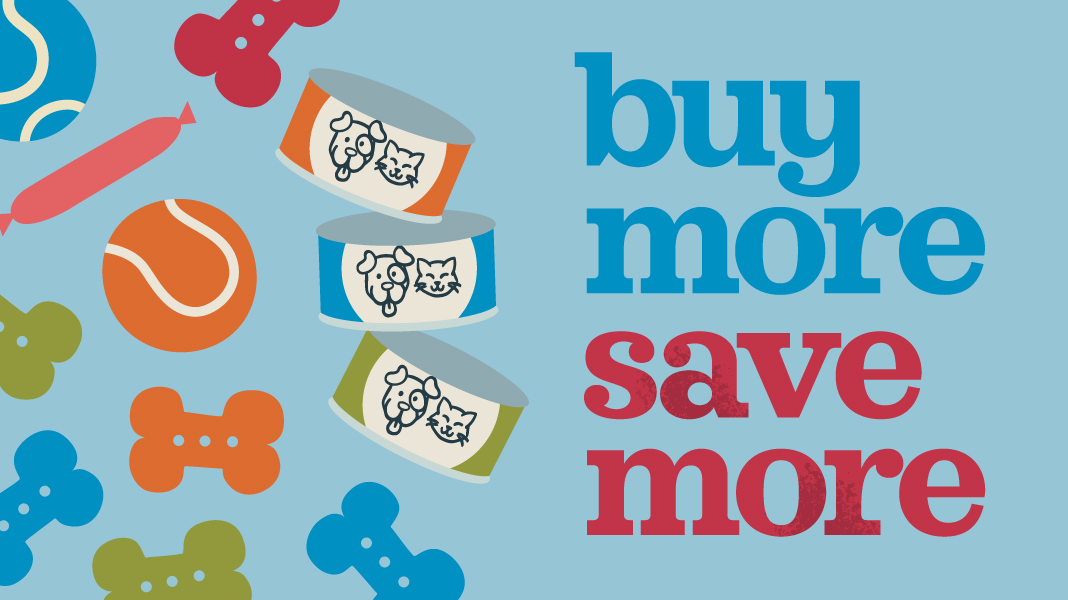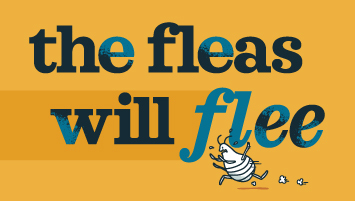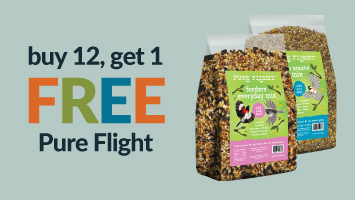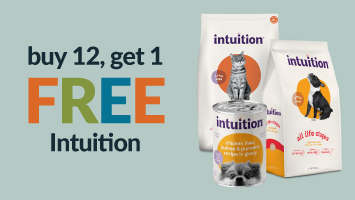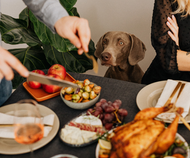What Can My Dog Eat on Thanksgiving Day?
Posted by Chow Hound Pet Supplies on Nov 10th 2022
Thanksgiving is a time to spend with family and friends while indulging in all the yummy holiday meals. It’s inevitable that the family dog will be begging for table scraps. As tempting as it may be to give your pooch a nibble (or two), it’s important to keep in mind how sensitive their stomachs are. Below we have compiled a list of Thanksgiving foods that are safe for your dog and the ones to should stay away from.
Safe Foods for Your Dog
TURKEY (WITHOUT SKIN & BONES)
Turkey is a staple in many households when it comes to Thanksgiving dinner. Plain, skinless turkey meat is safe to share with your pup in small quantities. In fact, turkey is considered to be a healthy treat due to its high protein and low-fat content. Make sure to only feed this to your pup in moderation as too much can cause an upset stomach.
GREEN BEANS
If you’re planning on making a green bean casserole this year, rest assured that it’s safe to hand off a few raw green beans to your pup. They don’t contain many calories and are full of iron, making them a healthy treat for your pup. Stay away from canned beans, however, as these contain salts and other spices that aren’t dog friendly.
CORN (OFF THE COB)
In small amounts, corn is perfectly safe to share with your furry friend. Never give your dog the cob. This can pose a choking hazard or cause intestinal blockage if swallowed. Just like other Thanksgiving foods, it is best to leave corn plain when sharing with your dog.
APPLES
Apples are a good source of fiber and vitamins A and C. They are a great treat to give your dog on any occasion! While apple slices are a safe bet to give your pup, be sure to never give them the core or seeds which can be toxic if given in large amounts.
CARROTS & CELERY
Making homemade stuffing this year? If so, you can feel good about giving your dog spare carrots and celery. Both contain an abundance of nutrients and vitamins. When feeding them to your furry friend, be sure to cut into bite-sized pieces for easy digestion and to prevent choking.

Foods to Stay Away From
TURKEY BONES
It’s no secret that dogs love bones. But, not all bones are safe for our dogs to enjoy. Chicken and turkey bones are not digestible for our pups and can be threatening to their digestive health. Additionally, turkey and chicken bones can break into extremely sharp pieces. When consumed, there is a high risk of the sharp pieces stabbing your dog’s mouth, throat, stomach and even the intestines.
CHOCOLATE DESSERTS
This may not come as a surprise to you, but you should never give your dog chocolate, even in the tiniest amount. Chocolate is highly toxic to dogs, and can be the root of many health issues. To list a few, chocolate can cause nausea, diarrhea, seizures and in rare cases, death can occur.
ONIONS & GARLIC
While they make for adding great flavor to our dishes, onions and garlic should never be shared with our pets. Cooked or uncooked, the entire allium family (shallots, leeks & chives) are extremely harmful to dogs and can cause serious medical problems.
GRAPES & RAISINS
Grapes and raisins make great additions to salads served at Thanksgiving dinner. For our four-legged family members, however, grapes and raisins can potentially be deadly if consumed in large quantities. Grapes can even cause severe and sometimes fatal kidney failure in dogs. All dishes containing grapes and raisins should be stored far out of reach from our pups.
STUFFING
Some ingredients in stuffing, such as carrots and celery, are safe when served individually to our pets. However, after stuffing is fully cooked, it is best to leave the enjoyment of this meal to the humans. Stuffing is often made with onions, scallions and garlic. Which, as mentioned previously, are extremely harmful to our dogs.
ALCOHOL
Alcohol should never be given to your pet under any circumstance. No amount of alcohol is ever safe for any of your pets to consume. Depending on the size of your dog, even the smallest amount of alcohol can result in alcohol toxicity. If you believe your dog has consumed any alcohol, you should contact your vet immediately.
